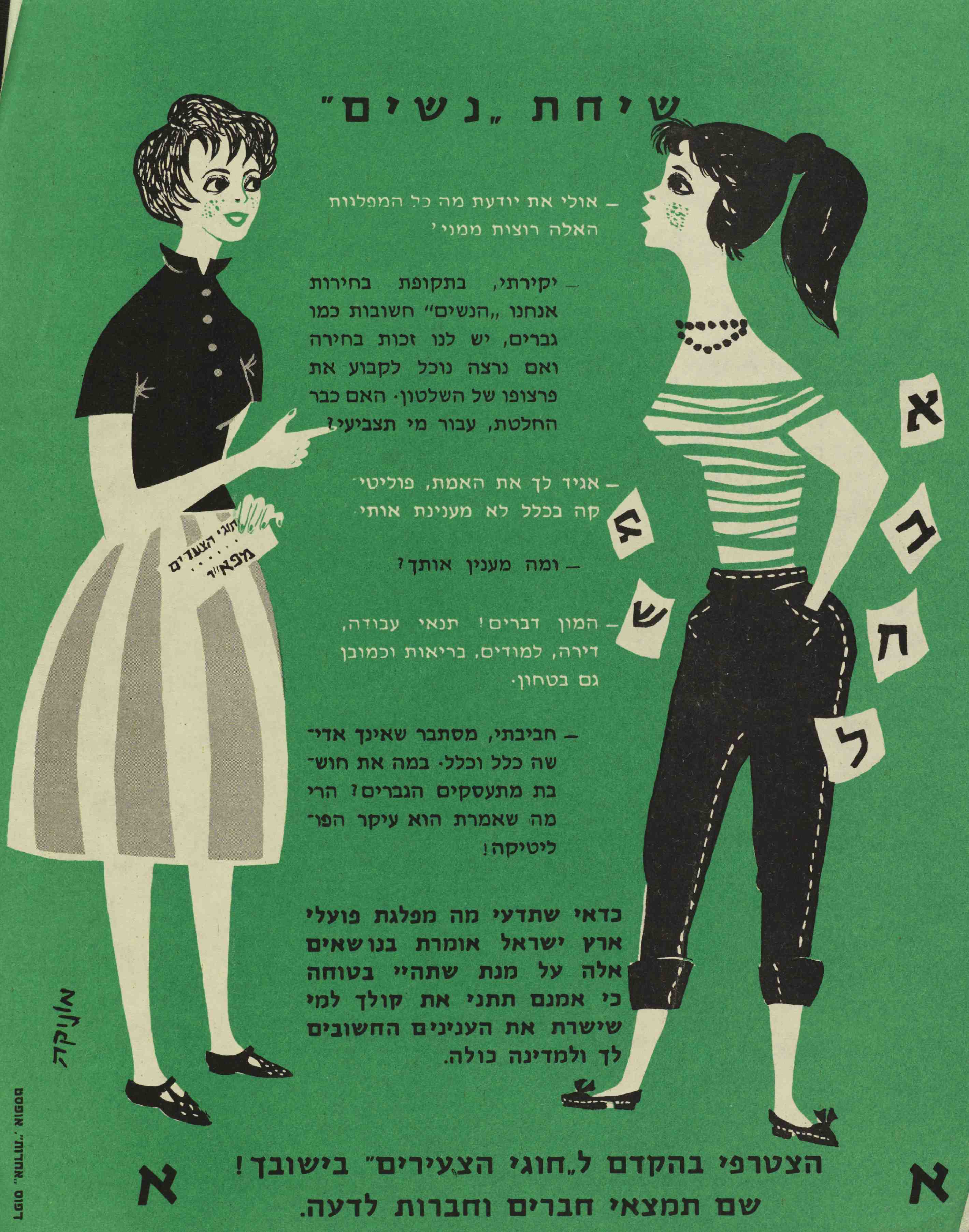International Women’s Day (March 8) was awarded long overdue attention in Israel this year, perhaps in reaction to the #MeToo and #TimesUp movements that have taken on, respectively, sexual harassment and equal pay for equal work.
This week also marked the launch of #ThatsHarassment, an American version of a 2016 online web-series about sexual harassment by Israeli film director Sigal Avin and executive producer David Schwimmer (best-known for his role as Ross on “Friends”), in partnership with RAINN (Rape, Abuse & Incest National Network), the largest anti-sexual violence organization in the United States.
Like the original Israeli version, which included a case of a commanding officer taking advantage of a young female soldier, #ThatsHarassment is a series of six short films depicting cases of sexual harassment in the workplace based on real events.
The full-length short films, which also have been repackaged as PSAs (public service announcements), will air digitally and on television by major media companies including Amazon Prime Video, CBS, The CW, Fox Networks Group, Freedom, Hulu, SHOWTIME, and STARZ.
There is no way to take a lighthearted nostalgic look back on Israel’s own history and handling of sexual harassment. To Israel’s credit, in 2011, a former president Moshe Katsav was imprisoned, convicted of two counts of rape and other sexual offenses, much of which took place in his office. (He was released in 2016, having served five years out of a seven-year sentence.) In 2001, former Minister of Defense Yitzhak Mordechai was indicted for sexual assaults and resigned from public life in ignominy.
But lesser incidents went unreported, even though the problem was so commonplace as to become the topic of popular, jokey songs from 1962’s Kshe At Omeret Lo, L’Mah At Mitkavenet? (“When You Say No, What Do You Mean”?), 1964’s Ahavat Poalei HaBinyan (“Construction Workers’ Love“), all the way up to 1983’s HaMe’antezet (“The Tease”).
Songwriter Naomi Shemer made a subtle attack in 1966 when she wrote Shir LeHaganat HaTzomeah (“Waltz to Protect the Seedling”), a beloved IDF Nahal Brigade entertainment corps classic.
The song lyrics, spoken by a lone seedling in a hostile field asking not to be picked, were always taken at face value but Shemer told music historian Ofer Gavish that this was not the case: “One day a kindergarten teacher called me and said, ‘I know how to costume the deer in the song, the cyclamen, the tulip, but there is one creature at the end that says it is neither animal nor flower. How do I dress it? ‘I told her… that she must dress the girl who sang at the end in a soldier’s uniform.”
The song addresses the point that while already in 1964, the Knesset had passed the Nature Reserves and National Parks Law, including a section related to the protection of nature, there was no such protection for women. In fact, the Law for the Prevention of Sexual Harassment was approved by the Knesset only in 1998, more than 30 years after Shemer wrote the song.
Comedy sketch show HaYehudim Ba’Im (“The Jews Are Coming”) recently took on harassment in the military with a song entitled Yesh Li Ahuv (“I Have A Beloved”), describing a series of increasingly demeaning scenarios, sung in classic 1960s IDF entertainment troupe videos style.
In honor of International Women’s Day, the Israel National Library created an educational exhibition of posters, pictures and other ephemera showing how the role of women has been depicted throughout the decades.

As in life, it is an uneven portrait: on one hand, the pioneer fighting shoulder to shoulder with her male compatriots, and on the other, advertisements for soups, sauces and dishwashing soaps geared at the happy homemaker.
The exhibit also includes cultural touchpoints like the 1961 poster encouraging young women to make their voice heard by becoming politically active in the Labor Party, and the 1972 mimeographed flyer issued by the Women’s Liberation Movement, calling for an anti-beauty contest protest and demanding, among other things, equal pay for equal work.
That battle — as in so many decades, so many other professional spheres, and so many other places in the Western world — will take longer to win.
















![Elections 1977 – Likud posters] In 1977, Menahem Begin led an election upset as Israel’s first non-Labor prime minister. Credit: GPO Elections 1977 – Likud posters] In 1977, Menahem Begin led an election upset as Israel’s first non-Labor prime minister. Credit: GPO](https://static.israel21c.org/www/uploads/2019/09/Elections_1977___Likud_posters_-_GPO-768x432.jpg)
